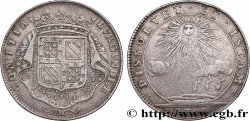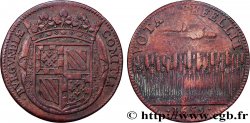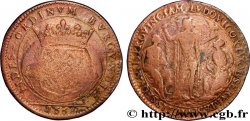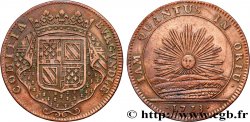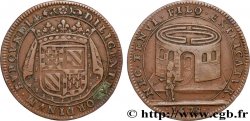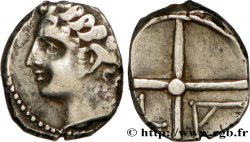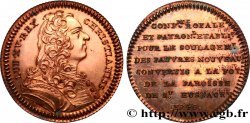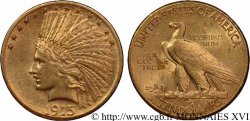fjt_771386 - BOURGOGNE (ÉTATS DE ...) Suppression des francs-fiefs et nouveaux acquêts 1676
35.00 €
Menge
In den Warenkorb

Type : Suppression des francs-fiefs et nouveaux acquêts
Datum: 1676
Metall : Kupfer
Durchmesser : 28 mm
Stempelstellung : 6 h.
Gewicht : 6,82 g.
Rand Lisse
Kommentare zum Erhaltungszustand:
Patine un peu sombre
Pedigree :
Jeton provenant de la Collection MARINECHE
Vorderseite
Titulatur der Vorderseite * .PROVIDENTIA. ORDINVM. BVRGVNDIÆ..
Beschreibung Vorderseite Armes de Bourgogne sur un manteau d’hermines.
Rückseite
Titulatur der Rückseite * SVCCVRRIT * OFFICIOSA * SVIS *.
Beschreibung Rückseite Un pélican à gauche ; à l’exergue : .1676..
Kommentare
Dans le cours de cette triennalité, on voit apparaître une nouvelle espèce de jetons qui, bien que portant les armes de la province, ne doivent pas être confondus avec les pièces triennales. Ils se rapportent aux francs-fiefs et nouveaux acquêts. Les biens nobles pouvaient être acquis par des roturiers, et alors la mutation entraînait de forts droits au profit du fisc. La dépréciation ainsi apportée sur la valeur des héritages, jointe aux exigences inquisitoriales des commis de la recette, engendra de graves abus et des vexations inouïes qui occasionnèrent jusqu'à des meurtres. Les États de Bourgogne firent supprimer la chambre des francs-fiefs, et les Élus obtinrent de traiter en bons pères de famille, directement avec le roi. C'était une œuvre de dévouement de leur part, et ils n'acceptèrent aucune indemnité pour ces fonctions exceptionnelles. Cependant, pour reconnaître un tel service public, les États offrirent à chacun cent jetons d'argent et un certain nombre de jetons de cuivre frappés exprès.
During this triennial period, a new type of token appeared which, although bearing the arms of the province, should not be confused with the triennial coins. They related to freeholds and new acquisitions. Noble property could be acquired by commoners, and then the transfer entailed heavy duties for the benefit of the tax authorities. The depreciation thus brought on the value of inheritances, combined with the inquisitorial demands of the revenue clerks, gave rise to serious abuses and unheard-of harassment that even led to murders. The States of Burgundy had the chamber of freeholds abolished, and the Elected obtained the right to deal as good fathers of families, directly with the king. This was an act of devotion on their part, and they accepted no compensation for these exceptional functions. However, to recognize such public service, the States offered each one hundred silver tokens and a certain number of copper tokens minted expressly
During this triennial period, a new type of token appeared which, although bearing the arms of the province, should not be confused with the triennial coins. They related to freeholds and new acquisitions. Noble property could be acquired by commoners, and then the transfer entailed heavy duties for the benefit of the tax authorities. The depreciation thus brought on the value of inheritances, combined with the inquisitorial demands of the revenue clerks, gave rise to serious abuses and unheard-of harassment that even led to murders. The States of Burgundy had the chamber of freeholds abolished, and the Elected obtained the right to deal as good fathers of families, directly with the king. This was an act of devotion on their part, and they accepted no compensation for these exceptional functions. However, to recognize such public service, the States offered each one hundred silver tokens and a certain number of copper tokens minted expressly







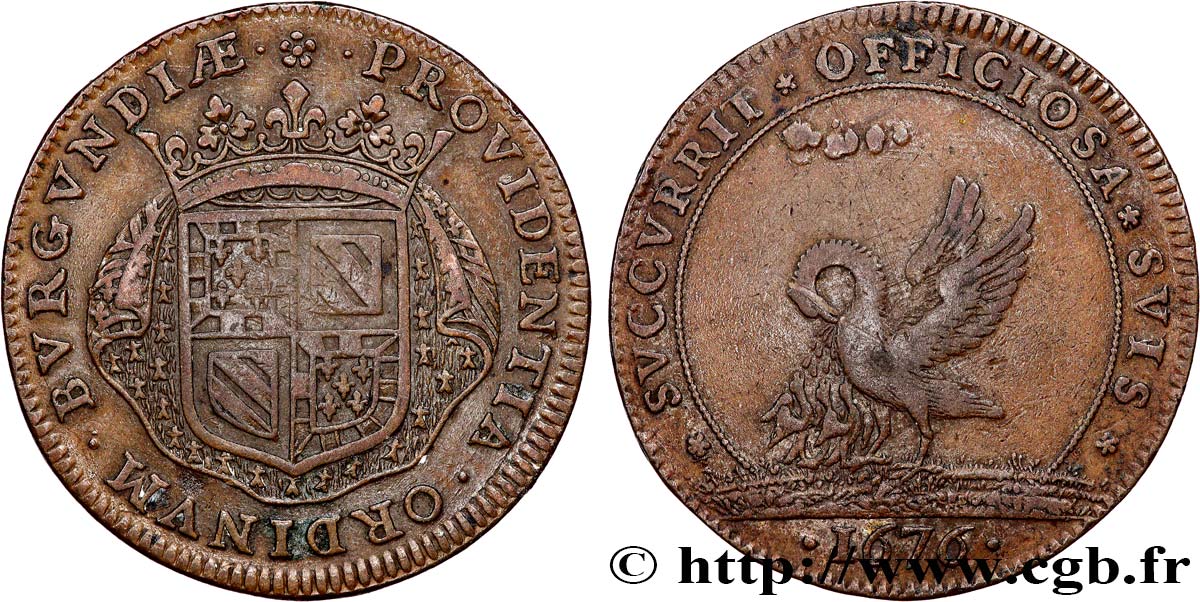
 Berichten über einen Fehler
Berichten über einen Fehler Die Seite drucken
Die Seite drucken Teilen meiner Auswahl
Teilen meiner Auswahl Stellen Sie eine Frage
Stellen Sie eine Frage Einlieferung/Verkauf
Einlieferung/Verkauf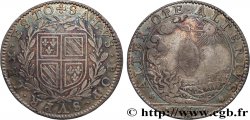
 Details
Details